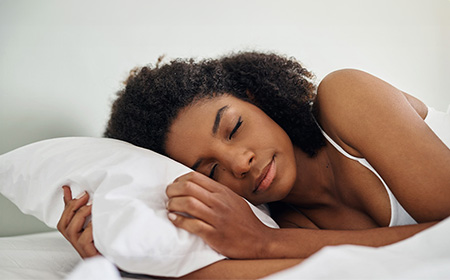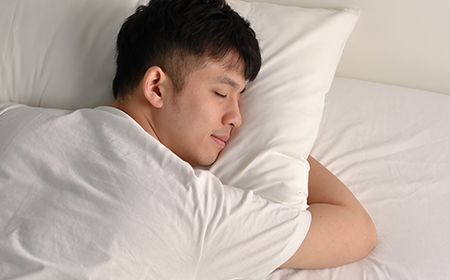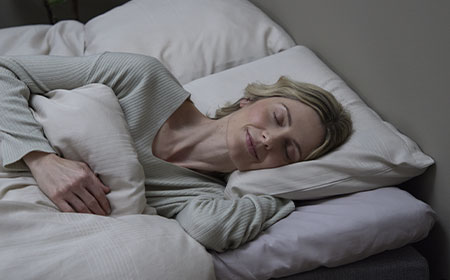Put an end to your sleeping problems by knowing the true facts about sleep. Many myths and facts about sleep can often get mixed up, therefore not helping you sleep any better at night. Discard the myths and read on to learn all about the real sleep facts and helpful sleeping tips.
1. Light just before bedtime can disrupt your sleep
True sleep tip - It's easier to fall asleep if you dim your lights and turn off all electronic equipment a good while before going to bed. The lights interrupt and activate your brain. If you have sleeping problems it can be a good idea to relax, for example by meditating in a room with dimmed lights before bedtime.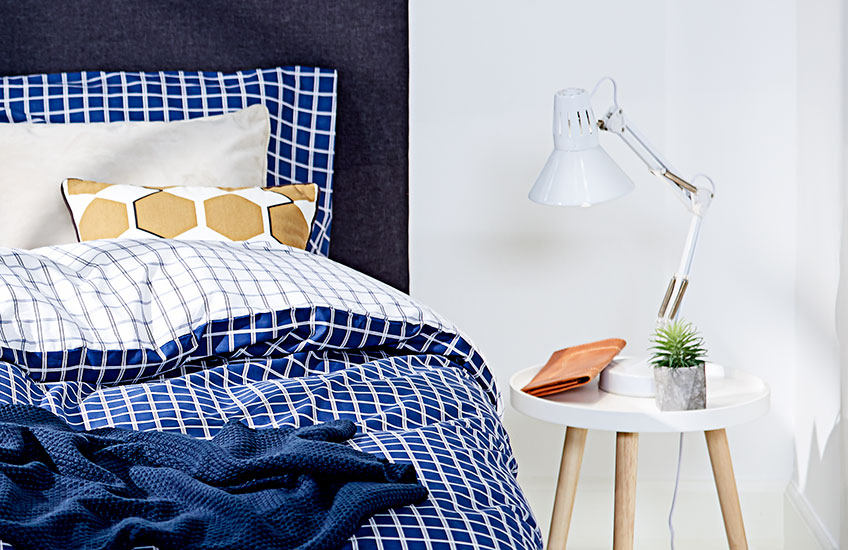
2. You can catch up on lost sleep
False sleep tip - In the case of more than one night of lost sleep it isn't possible to catch up. So if you're one of the many people that generally sleep too little during the week, it doesn't work to just catch up on it during the weekend. For example, if you only sleep 6 hours a night on the weekdays (and need 8) you will be short of 10 hours worth of sleep in a week. It can therefore be a good idea to go earlier to bed, instead of staying up watching TV till late in the evening.
3. Adults need 8 hours of sleep every night
True sleep tip - On average, adults need approximately 8 hours of sleep each night. However, there are some people that need both less or more sleep. Some people need 12 hours of sleep every night, while others need only 6 hours. So even though many people sleep less than 8 hours it doesn't mean that they don't need 8 hours of sleep.
You can read more about need for sleep here.
4. You shouldn't get out of bed if you can't sleep
False sleep tip - If it annoys you to lie awake in your bed you can get up. Just remember to do something less active so that your body doesn't become convinced that it's daytime.
If you stay in your bed frustrated with your sleeping problems, you'll end up associating your bed with something negative instead of a place for resting. If you get up, you can, for example, read for a while in the lights of these LED-candles, which you don't have to blow out in case you do happen to doze off.
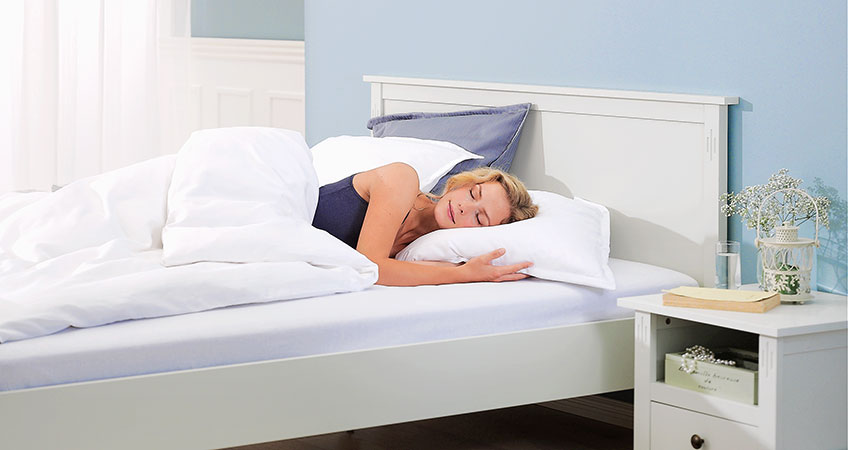
5. A power nap is good for your concentration
True sleep tip - If you're sleepy, you can easily take a nap during the day and still sleep well at night. Just make sure to keep the nap shorter than 30 minutes and not too late in the day. The nap will give you a bit of extra energy to get you through the rest of the day.
6. Children shouldn't sleep in their parents bed
False sleep tip - There are actually several advantages of sharing a bed, both for the parents and for the child. Research shows that bed sharing benefits the bonding between parents and child, and that it increases the child's confidence.
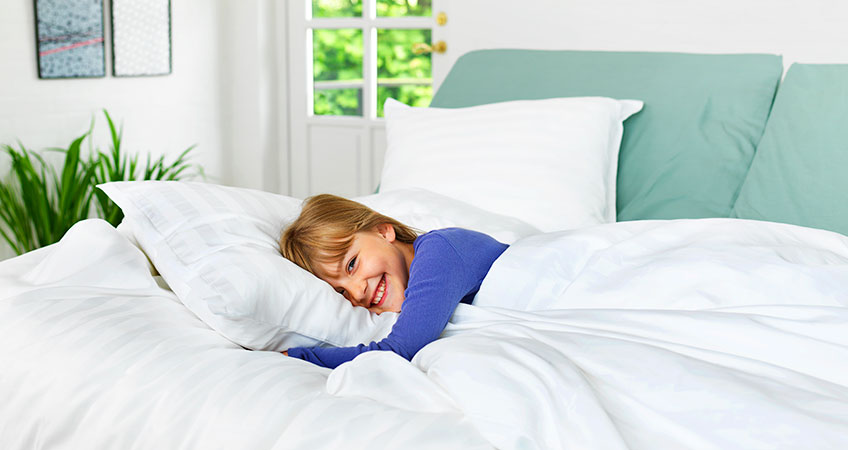
7. It's best to sleep in a cool room
True sleep tip - It benefits your sleep to sleep in a cool environment. Your body temperature drops at night, and if your bedroom is too hot your body is then not able to get rid of the heat. Obviously you shouldn't be too cold, so it is a good idea to have a good quilt.
The benefit of sleeping with a quilt instead of sleeping in a warmer room is that you have the opportunity to listen to your body all through the night. If you're cold, you can wrap yourself in your quilt, and if you're sweating then you can simply remove it. The optimum temperature for your bedroom should be around 18-19 degrees – just a little bit below room temperature.
We hope that you'll find our sleeping tips useful. If you want more tips to get a good nights sleep you can read more about how to get a good night's sleep here. All there is left to say is: Sleep well!
Sources:
- http://www.sleephealthfoundation.org.au
- http://cosleeping.nd.edu/
- https://sleepfoundation.org
- http://www.sleepeducation.org/

